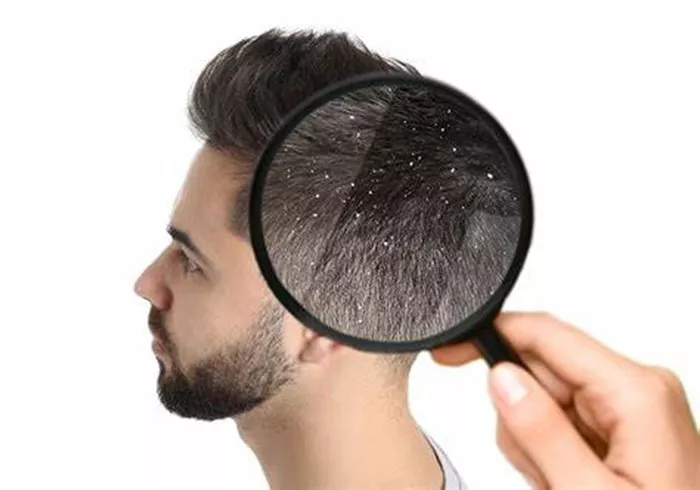Dandruff is a common scalp condition that affects millions of people worldwide. While it is often seen as a minor nuisance, severe dandruff can lead to more serious issues, including hair loss. Many people wonder whether hair loss caused by dandruff can be reversed. The good news is that, in most cases, it can be—provided the underlying cause is addressed properly.
Understanding the Link Between Dandruff and Hair Loss
Dandruff itself does not directly cause hair loss, but the persistent itching and inflammation associated with it can damage hair follicles over time. When you scratch your scalp excessively, you weaken the roots, leading to breakage and even permanent follicle damage in severe cases. Additionally, certain fungal infections, such as Malassezia, which contribute to dandruff, can trigger scalp inflammation, further accelerating hair shedding.
Another factor is seborrheic dermatitis, a more severe form of dandruff characterized by red, greasy, and scaly patches. This condition can disrupt the hair growth cycle, pushing follicles into a resting phase (telogen) prematurely, resulting in increased hair fall.
How Dandruff-Induced Hair Loss Happens
The process of hair loss due to dandruff typically follows these stages:
- Scalp Irritation – The presence of excessive flakes and dryness leads to itching.
- Inflammation – Scratching causes micro-injuries, leading to redness and swelling.
- Follicle Damage – Constant irritation weakens hair roots, making them more prone to falling out.
- Hair Shedding – If left untreated, prolonged inflammation can disrupt the natural hair growth cycle, leading to noticeable thinning.
Fortunately, this type of hair loss is usually temporary. Once the scalp condition is treated, hair can often regrow.
Steps to Reverse Hair Loss Caused by Dandruff
Reversing hair loss from dandruff involves a combination of medical treatments, proper hair care, and lifestyle adjustments. Here’s how you can restore your scalp health and promote regrowth:
Treating the Underlying Dandruff
The first step is to eliminate dandruff to stop further hair damage. Several over-the-counter (OTC) and prescription treatments can help:
- Anti-Dandruff Shampoos – Look for active ingredients like ketoconazole, selenium sulfide, zinc pyrithione, or coal tar. These help control fungal growth and reduce flaking.
- Medicated Treatments – If OTC shampoos don’t work, a dermatologist may prescribe stronger antifungal or corticosteroid solutions.
- Natural Remedies – Tea tree oil, apple cider vinegar, and aloe vera have antifungal and soothing properties that can help manage mild dandruff.
Reducing Scalp Inflammation
Since inflammation contributes to hair loss, calming the scalp is crucial:
- Avoid Scratching – Scratching worsens irritation and damages follicles. Use a gentle scalp massager instead.
- Moisturize the Scalp – Dryness exacerbates dandruff. Use a lightweight, non-comedogenic scalp serum or oil (like jojoba or argan oil).
- Cold Therapy – Applying a cold compress can reduce itching and swelling.
Strengthening Hair Follicles
Once dandruff is under control, focus on repairing and strengthening hair:
- Nutrient-Rich Diet – Protein, iron, zinc, and vitamins (especially B vitamins and D) support hair growth.
- Topical Treatments – Minoxidil (Rogaine) can stimulate regrowth in cases where hair loss persists.
- Scalp Massages – Improves blood circulation, encouraging healthier follicles.
Preventing Future Dandruff and Hair Loss
Maintaining a healthy scalp is key to preventing recurrence:
- Regular Cleansing – Wash hair 2-3 times a week with a mild, sulfate-free shampoo.
- Avoid Harsh Products – Alcohol-based styling products can dry out the scalp.
- Manage Stress – Stress worsens dandruff and hair loss, so relaxation techniques like yoga or meditation can help.
When to See a Dermatologist
If hair loss continues despite treating dandruff, consult a dermatologist. Persistent shedding could indicate other conditions like:
- Androgenetic Alopecia – Genetic hair loss that may coincide with dandruff.
- Alopecia Areata – An autoimmune condition causing patchy hair loss.
- Chronic Seborrheic Dermatitis – May require prescription-strength treatments.
Conclusion
Hair loss caused by dandruff is usually reversible with the right approach. By treating the root cause of dandruff, reducing inflammation, and adopting a healthy hair care routine, most people can restore their scalp health and encourage regrowth. However, if hair loss persists, seeking professional advice is essential to rule out other underlying conditions. With patience and consistency, a flake-free, fuller head of hair is achievable.
Related Topics:
- Does a Hair Transplant Stop Balding?
- Could Anti-Frizz Products Contribute to Hair Loss? Experts Weigh In
- Can Permanent Hair Loss Be Reversed?


